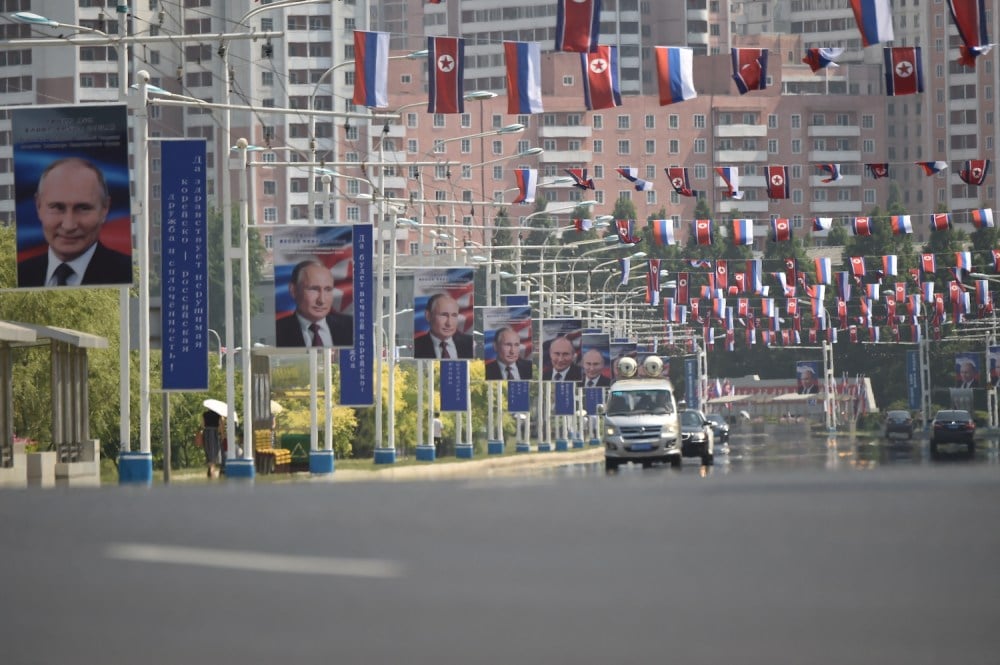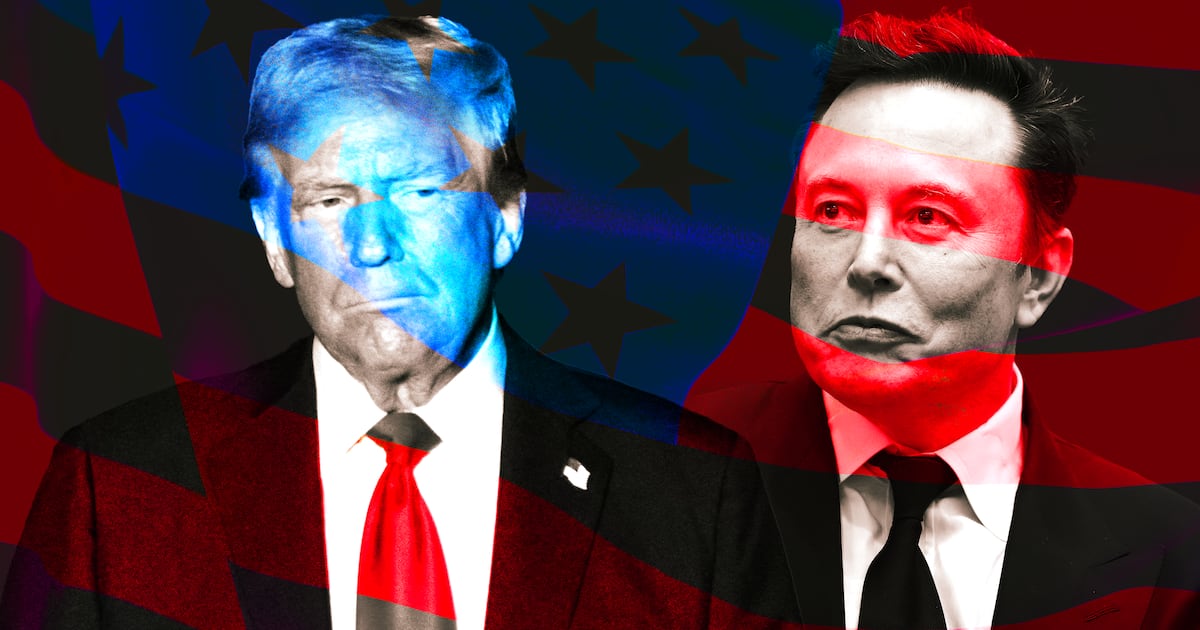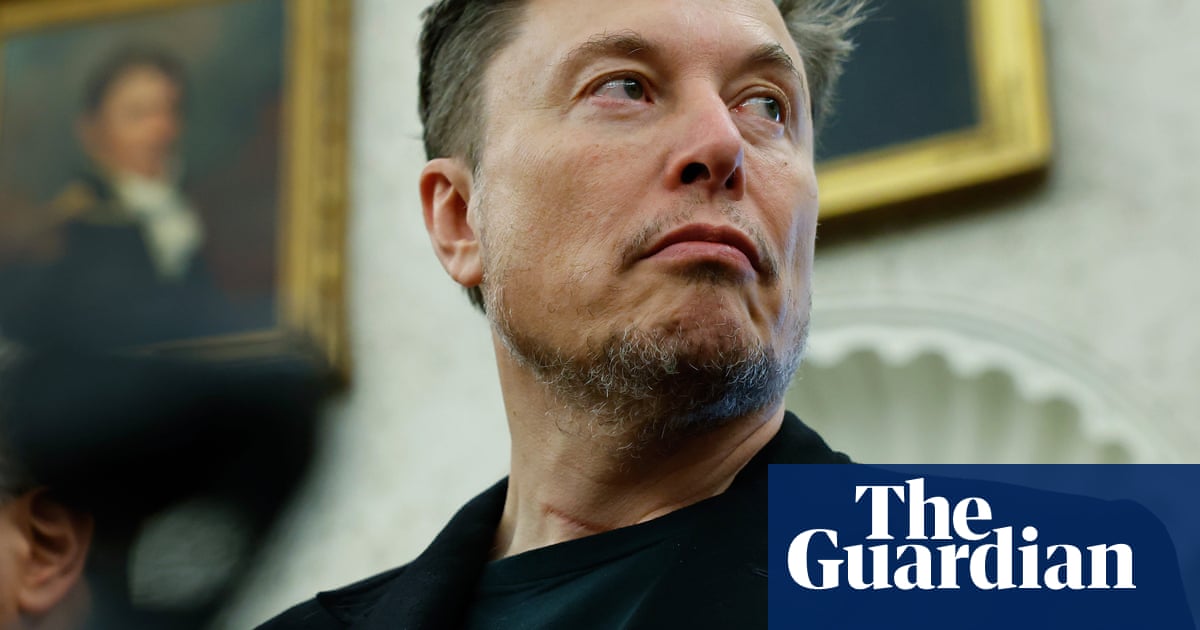The deployment of 10,000 or so North Korean troops to Russia marks a sharp escalation and internationalization of Europe’s biggest war in generations, with potential impacts on the battlefield, in Europe, and in Northeast Asia. It’s an embarrassing comedown for Moscow, bad news for Ukraine, and a very scary development for South Korea and the rest of the world.
Pyongyang has been underwriting Russia’s war in Ukraine for years by supplying literal boatloads of artillery shells. Injecting actual combat troops into the war at a critical time not only ratchets up the pressure on a war-weary and manpower-weak Ukraine, it also deepens the bonds and implications of the four-month-old Russia-North Korea mutual defense pact.
The deployment of 10,000 or so North Korean troops to Russia marks a sharp escalation and internationalization of Europe’s biggest war in generations, with potential impacts on the battlefield, in Europe, and in Northeast Asia. It’s an embarrassing comedown for Moscow, bad news for Ukraine, and a very scary development for South Korea and the rest of the world.
Pyongyang has been underwriting Russia’s war in Ukraine for years by supplying literal boatloads of artillery shells. Injecting actual combat troops into the war at a critical time not only ratchets up the pressure on a war-weary and manpower-weak Ukraine, it also deepens the bonds and implications of the four-month-old Russia-North Korea mutual defense pact.
“It’s a big escalation, because there’s a difference between sending ammunition and sending forces,” said Rob Lee, a senior fellow in the Foreign Policy Research Institute’s Eurasia program.
Last week, reports started circulating about North Korean troops being dispatched to Russia. Within days, the reports were confirmed by Ukrainian President Volodymyr Zelensky and by South Korean intelligence, which said about four brigades of North Korean special forces have been dispatched to Russia for training and acclimatization. On Wednesday, the United States joined the fray after U.S. Defense Secretary Lloyd Austin confirmed the North Korean deployment to Russia, though he confessed he couldn’t quite understand the point of it all.
He’s not alone. Indeed, all of this raises several important questions. Below is our best attempt to answer them.
Russia loses something like 1,000 troops a day in Ukraine. What good are 10,000 fresh troops? And when was the last time North Korean troops were even in combat?
It’s true that Russia has had high casualty rates from its war in Ukraine, with some of its bloodiest days occurring this month. But the North Korean troops, unlike Russian conscripts and convicts, might not just be cannon fodder.
South Korean intelligence flagged the deployed units as special forces, apparently part of North Korea’s XI Corps, a 200,000-person, 18-brigade strong spearhead of the North Korean army that is actually well-fed, well-trained, uber-indoctrinated, and especially gifted at infiltration operations. They might have trouble with modern warfare and the Russian language, but if North Korea’s mass army has quality units, these are it.
“These units pose a significant threat in both offensive and defensive operations,” said a South Korean defense analyst who requested anonymity to discuss North Korean capabilities.
But they will have Russian weapons, Russian logistics, and Russian support, and they will be fighting alongside Russians. How could this injection shore up a war that half a million Russians haven’t been able to?
Location, location, location. Indications are that the Russians could use North Korean reinforcements to finish off the Ukrainian incursion into Russian territory around Kursk, with possible front-line deployment as early as November.
Their potential use in Kursk is important in two respects. First, politically, it fits neatly inside the terms of the June mutual defense agreement between Moscow and Pyongyang, in which either side can help the other repel armed aggression on their territory. Second, in a historical rhyme, this year of the war has seen Kursk take on outsized importance. To the extent Russia can tip the balance around Kursk with fresh, relatively high-quality troops, it can redeploy its own forces to reinforce success further south, where it is close to cracking Ukrainian defenses in Donetsk, potentially opening the door to big gains onward toward Zaporizhzhia and Dnipro.
With the balance of forces around Kursk already tilting slowly against Ukraine, Rob Lee said, “10,000 or so troops who are willing to fight could make a difference.” Any Ukrainian response would mean weakening that southern front, essentially turning the small North Korean deployment into a force multiplier for Moscow’s own beleaguered forces.
So Ukraine is not thrilled by this development?
Not at all. Ukraine’s head of military intelligence frets that the combination of North Korean munitions now backed by North Korean troops amounts to an undeclared world war. Zelensky, while not entirely clear on the number or composition of North Korean troops, is sure they are a threat that Ukraine’s Western partners must counter. Ukraine, which had no shortage of volunteers for the war in its early days, now sees manpower even more than materiel as perhaps its biggest challenge.
The limited good news for Kyiv is that the European Union will lend it up to 35 billion euros ($37 million), backed by interest from frozen Russian assets. The bad news is that the continuing Hungarian veto over making EU sanctions on Russia permanent, rather than requiring regular and contentious renewal, essentially prevents the United States from joining the bailout effort and ramping up financial assistance to Ukraine even further.
Meanwhile, Zelensky’s “victory plan,” which calls for more support, fewer Western restrictions on fighting Russia, and an actual path to NATO membership, was met with apathy in Western capitals, especially Washington. More battlefield reversals are the last thing Kyiv needs right now.
What does North Korea get out of this? They were already getting goodies just for sending artillery shells.
Yes, but the dispatch of actual troops is a sea-change in the nature of the defense relationship between the two countries. In addition to a possible flood of casualties, North Korea will likely get even more Russian assistance, a newfound place on the global stage, some much-needed firsthand combat experience in modern war, and perhaps even a free hand to make even more mischief on the Korean Peninsula.
“Sending weapons is one thing, but sending your own men is another level of investment and commitment. It’s a bigger investment, so a bigger return is expected,” said Rachel Lee, an expert on North Korea at the Stimson Center. “I find it hard to believe that Kim [Jong Un] would send troops without a down payment,” especially with the possibility of a new U.S. president aiming to end the war on any terms, and thus end North Korea’s temporary Russian gravy train.
The South Korean defense analyst said the short-term dividends for Kim would include a baptism in modern warfare, especially in the use of drones for offensive and defensive purposes. (North Korean troops are already getting drone training while still in Russia’s far east.) They said that North Korea could benefit from helping in Russia’s war much the same way South Korea modernized its armed forces after aiding the United States in Vietnam.
And if Kim felt emboldened by his new Russian partnership and a debt of a few million artillery shells, North Korea’s escalating involvement will only likely empower Kim further to take an even more aggressive line in and around Korea, Rachel Lee said.
“Kim has increased leverage over Putin, so he would have more reason to count on Russia now if and when needed,” she said. Instead of just worrying about Chinese involvement, “if there is a contingency situation on the Korean peninsula, we will now have to think about an increased Russian presence.”
So the ultimate impact of the North Korean troops in Russia could be felt across the world?
That’s the fear. South Korea has already intensified contacts and information-sharing with NATO; NATO Secretary General Mark Rutte said on Monday that North Korean troops would be a “significant escalation” and highlighted the greater diplomatic and defense talks with South Korea.
South Korea, which demanded the North Korean troops leave Russia, has already broached the idea of moving from shipping nonlethal aid to Ukraine to shipping arms, which would mark its own escalation into a war half a world away. Seoul is also reportedly mulling the dispatch of interpreters to help Ukraine interrogate any North Korean prisoners, potentially turning Kursk into a Korean proxy war. Couple that with a newly battle-hardened North Korean cadre, or at least the remnants that come home, and what looks today like a desperate move to fill Russian ranks could end up becoming something much more troubling.
“If North Korea deploys actual combat forces [to Russia], this could lead to changes in the military balance on the Korean Peninsula in both the short and the long term,” said the South Korean analyst.


